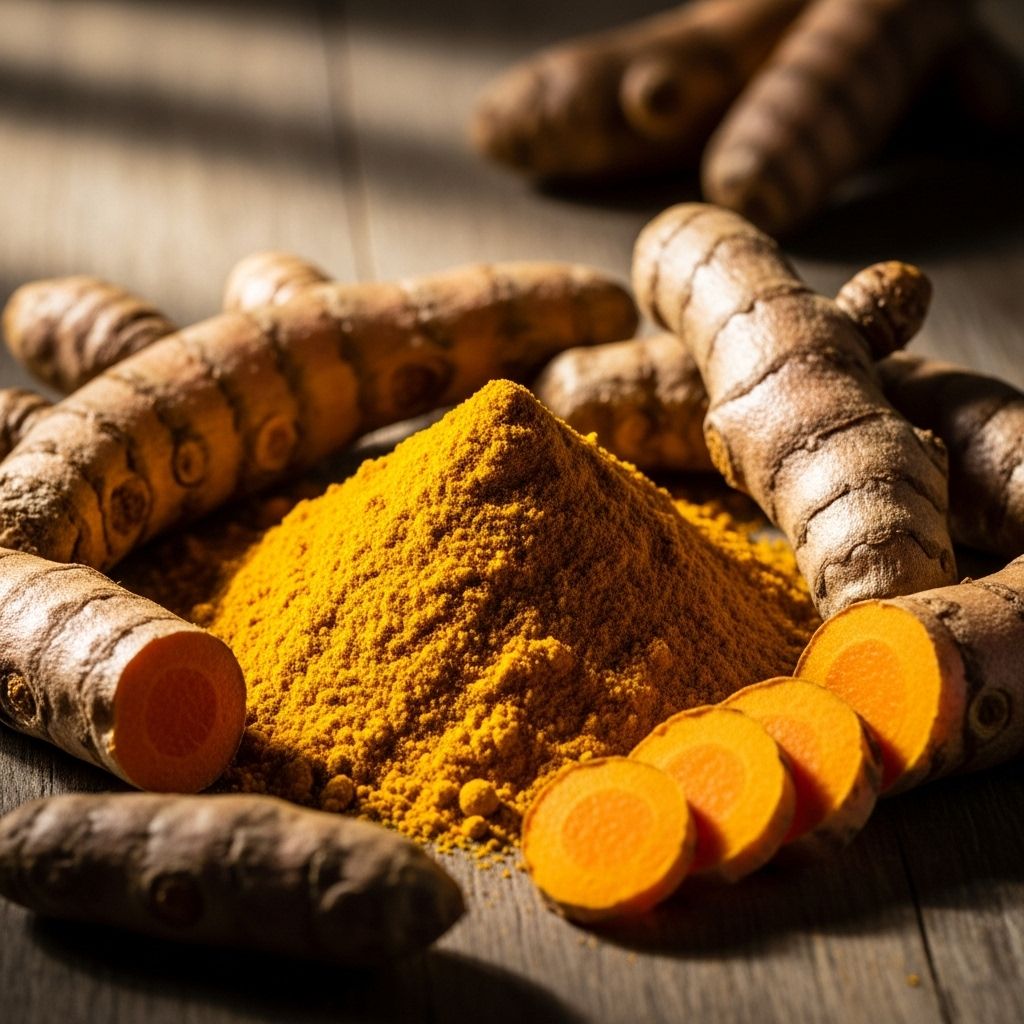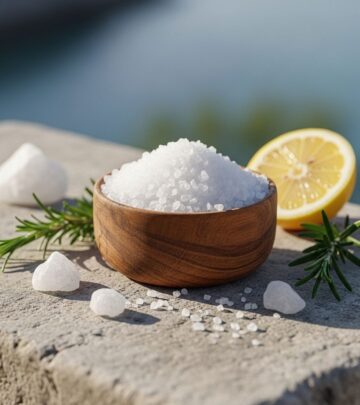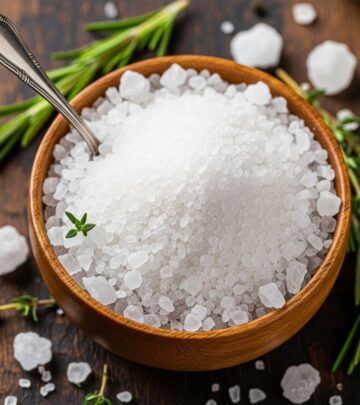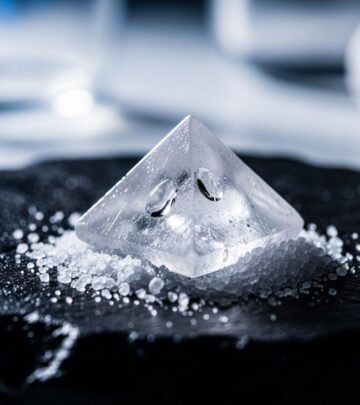Serious Side Effects Of Turmeric: What You Need To Know
Overdosing on this spice can impair digestion, blood clotting, and liver function.

Turmeric (Curcuma longa), prized for centuries in traditional medicine and widely used in cooking, has garnered modern acclaim for its anti-inflammatory and antioxidant properties. While generally safe as a culinary spice, high doses and concentrated supplements of turmeric and its active compound, curcumin, can pose health risks. Understanding these potential side effects is crucial before incorporating turmeric, especially supplements, into your daily regimen.
Table of Contents
- Common and Serious Risks of Turmeric Usage
- Digestive Disturbances
- Risk of Bleeding Disorders
- Gallbladder Complications
- Pregnancy and Reproductive Issues
- Kidney Stones Risk
- Impact on Blood Sugar and Diabetes Medications
- Drug Interactions
- Iron Absorption and Anemia
- Liver Toxicity and Injury
- Allergic Reactions and Skin Irritation
- Quality Concerns: Contamination and Adulteration
- Frequently Asked Questions
Common and Serious Risks of Turmeric Usage
Turmeric and curcumin supplements, especially in large amounts, have been linked to a range of adverse effects. These range from mild gastrointestinal symptoms to more severe complications impacting bleeding tendency, liver health, and drug interactions. The risks often depend on dose, individual sensitivity, and quality of the supplement consumed .
Digestive Disturbances
One of the most frequently reported side effects of turmeric supplements is gastrointestinal upset. Although turmeric spices added to food rarely cause problems, higher doses—especially as extracts or capsules—may lead to:
- Nausea
- Diarrhea
- Stomach cramping
- Indigestion and acid reflux
- Vomiting
These symptoms tend to occur more often with supplementation or chronic high intake .
Risk of Bleeding Disorders
Turmeric contains substances that may slow blood clotting, which can increase the risk of bleeding, especially when combined with anticoagulant or antiplatelet medications such as aspirin, warfarin, or clopidogrel. Those with bleeding disorders or scheduled for surgery should avoid turmeric supplements, as they may exacerbate bleeding risks .
- Potential symptoms: Easy bruising, prolonged bleeding, nosebleeds, heavy menstrual flow.
- Clinically significant in those on blood thinners or with clotting disorders.
Gallbladder Complications
Turmeric can stimulate gallbladder contractions and increase bile production, which may aggravate gallbladder problems such as gallstones or biliary obstruction. Use is discouraged in those diagnosed with gallbladder disease.
- May trigger painful episodes in susceptible people.
Pregnancy and Reproductive Issues
Pregnant and breastfeeding women should exercise caution with turmeric, especially supplemental forms. Turmeric may act as a uterine stimulant in large doses, potentially increasing the risk of complications in pregnancy. Its safety during breastfeeding is not well established .
- No evidence suggests culinary amounts are harmful, but medicinal doses and supplements are not recommended.
Kidney Stones Risk
Turmeric contains moderate amounts of oxalates, natural compounds that can bind with calcium to form insoluble crystals. These crystals may contribute to the formation of kidney stones, particularly in people prone to them or with a history of stones. Caution is advised in such individuals .
- Potential symptoms: Flank pain, hematuria (blood in urine), urinary discomfort.
Impact on Blood Sugar and Diabetes Medications
Turmeric and curcumin may lower blood sugar levels, which appears beneficial; however, in people with diabetes or those taking medication to control blood sugar, it can increase the risk of hypoglycemia (dangerously low blood sugar). Monitoring and medical supervision are advised .
Dangerous Drug Interactions
Turmeric and curcumin can influence how the body processes various medications by interacting with enzymes or amplifying drug effects. Known drug interactions include :
| Medication Type | Potential Interaction | Examples |
|---|---|---|
| Anticoagulants/Antiplatelets | Increased bleeding risk | Warfarin, Aspirin, Clopidogrel |
| Diabetes medications | Risk of hypoglycemia | Insulin, Metformin, Sulfonylureas |
| Immunosuppressants | Altered drug effectiveness | Cyclophosphamide, Others |
| CYP450 Metabolized Drugs | Changed metabolism | Antihistamines, Benzodiazepines, Calcium Channel Blockers |
| Other | Various other interactions | Ibuprofen, Chemotherapy agents |
Always consult a healthcare professional before combining turmeric supplements with prescription medications.
Iron Absorption and Anemia
High doses of turmeric may interfere with iron absorption, as turmeric compounds can bind to iron in the digestive tract. This can increase the risk of iron deficiency anemia in vulnerable individuals, especially those already deficient or at risk (women of childbearing age, vegetarians, frequent blood donors) .
- Monitoring iron status is recommended for long-term users of turmeric supplements.
Liver Toxicity and Injury
While turmeric is often promoted for its hepatoprotective (liver-protecting) properties, reports have emerged of liver injury and hepatotoxicity associated with both low and high doses of turmeric or curcumin supplements. Symptoms may include:
- Yellowing of the skin or eyes (jaundice)
- Upper abdominal pain
- Malaise, nausea, or vomiting
- Unexplained fatigue
Individuals with pre-existing liver or bile duct disease should avoid turmeric supplements, and all users should be vigilant for signs of liver dysfunction .
Allergic Reactions and Skin Irritation
Turmeric can trigger allergic reactions in some individuals. Symptoms range from mild skin irritation to severe reactions like anaphylaxis. Manifestations include:
- Skin rashes, redness, or hives
- Swelling of lips, tongue, or throat
- Difficulty breathing, chest tightness
- Itching or burning sensation
- Runny nose or watery eyes
Immediate medical attention should be sought if severe allergic symptoms or anaphylaxis occur .
Quality Concerns: Contamination and Adulteration
Not all commercial turmeric powders are created equal. Quality and purity can vary widely. Issues identified include :
- Filler contamination: Some turmeric powders are mixed with cassava starch, flour, or other grains, which pose a risk to those with gluten intolerance or celiac disease.
- Food colorants: To make turmeric powder appear more vibrant, questionable dyes may be added, some of which are not safe for consumption.
- Lead contamination: Several reports document turmeric adulteration with lead-containing compounds, especially in regions with lax regulations. Lead is a neurotoxin that accumulates in the body and poses serious health risks, particularly to children and pregnant women.
To safeguard health, only purchase turmeric and curcumin supplements from reputable, tested sources.
Frequently Asked Questions (FAQs)
Q: How much turmeric is considered safe?
A: In food, turmeric is generally recognized as safe. Supplements containing 500–2,000 mg of curcumin per day are commonly used, but exceeding these amounts increases the risk of side effects. Always follow manufacturer instructions and consult a doctor, particularly for high doses.
Q: Who should avoid turmeric supplements?
A: Anyone with gallbladder disease, bleeding disorders, diabetes on medication, iron deficiency, liver or kidney disease, women who are pregnant or nursing, and people taking certain medications (see table above) should avoid turmeric supplements unless supervised by a healthcare provider.
Q: Is turmeric safe for children?
A: Small amounts in food are generally safe for children, but turmeric supplements should not be given unless recommended by a physician due to unknown risks and lack of pediatric data.
Q: Can turmeric be applied to the skin?
A: Turmeric is used topically for its anti-inflammatory effects, but may cause skin staining or allergic reactions in some people. A patch test is advised before broader use on the skin .
Q: What should you do if you suspect a turmeric reaction?
A: Discontinue all turmeric and curcumin products immediately. If symptoms suggest an allergic reaction (e.g., swelling, breathing trouble, severe rash) or signs of liver injury (e.g., jaundice, persistent abdominal pain), seek urgent medical care.
Summary Table: Key Risks and Effects of Turmeric
| Side Effect / Risk | Who Is At Risk | Recommended Action |
|---|---|---|
| Digestive Upset | Anyone at high doses | Reduce dose or discontinue |
| Bleeding Disorders | Those on anticoagulants, clotting disorders | Avoid supplements |
| Gallbladder Issues | History of gallstones | Avoid turmeric/consult doctor |
| Kidney Stones | Prone to stones | Limit use, adequate hydration |
| Iron Deficiency | Anemia-prone, menstruating women | Monitor iron levels |
| Liver Injury | Liver disease, supplement users | Monitor symptoms, seek care if jaundice occurs |
| Allergic Reactions | History of allergies/asthma | Stop use, seek emergency care if severe |
| Adulteration Contamination | All users | Buy only from trusted brands |
| Drug Interactions | Polypharmacy, chronic conditions | Consult healthcare provider |
Final Advice
Although turmeric provides health benefits for many when used appropriately, its supplemental (high-dose) use is not without risks. Carefully consider your health status, medications, and risk factors before taking turmeric or curcumin supplements, and always consult a qualified healthcare professional for personalized advice.
References
Read full bio of Sneha Tete












